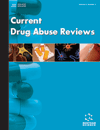-
oa Editorial [Hot topic: Cognitive Enhancing Drugs: A Blessing for Society? (Joris C. Verster)]
- Source: Current Drug Abuse Reviews, Volume 3, Issue 3, Sep 2010, p. 127 - 128
-
- 01 Sep 2010
Abstract
Our 24 hour economy places high demands on society in terms of long working hours, sometimes at an unusual time of day (e.g. shift-work), planning, time pressure, and requests for increased productivity and higher cognitive achievements. This can have significant health and safety consequences such as increased daytime sleepiness, reduced alertness, and stress to fulfill all job requirements on time. Likewise, students have to complete their academic education in a shorter time than two decades ago, and often have to work along side their academic activities to bear the costs of daily living. Increased competition on the labor market further increases pressure, because high grades are essential to ensure a successful start of their future career. For a growing number of people, traditional substances used to enhance cognitive and psychomotor performance such as caffeine and nicotine seem insufficient to counteract the consequences of our 24 hour society. As a result, the use of cognitive enhancing drugs is on the increase [1]. These drugs, popularly called ‘smart drugs’, are used off-label to enhance learning and memory and improve academic performance. Especially stimulant drugs such as methylphenidate and amphetamines are increasingly popular among students. However, cognitive enhancing drugs were not designed for this purpose. Instead, these drugs were developed to treat patients who experience concentration problems such as patients with attention-deficit hyperactivity disorder (ADHD) or cognitive decline in Alzheimer's disease and dementia. It is likely that the future development of new and improved cognitive enhancing drugs will lead to increased off-label use as well. The (ethical) question whether this is desirable or not can be viewed from different angles. In sports there is little debate about performance enhancing drugs: the use of these drugs is regarded as cheating and unfair [2]. Penalties of getting caught after using these drugs are severe: sportsmen are excluded from competitions and have to return their medals. Dealing these drugs leads to high fines or even imprisonment. Doping agencies are continuously checking drug use among sportsmen and their whereabouts. Many people adopt the drugs doping view when discussing the use of cognitive enhancers to improve academic performance. In their view, the use of smart drugs to enhance cognitive functioning should also be regarded as cheating. The use of smart drugs is considered as unfair, because it gives those students who use them an advance to those who don't. Using smart drugs is equally unfair as allowing some students to use a dictionary when completing a French exam, while others should do without this aid. In most cases, studying, attending the lectures, and adopting a healthy lifestyle, including regular exercise, quality food, and sufficient sleep should be enough to ensure academic success. In fact, students are admitted to University because they are regarded as sufficiently mentally competent to understand the courses and pass examinations. And, from a practical perspective: what if performance levels of a person can only be reached by taking smart drugs? Should this individual take smart drugs for the remainder of his life to have a successful career? On the other hand, the moral view on performance enhancing drugs can also be challenged when it comes to cognitive enhancing drugs. That is, alternatively it can be argued that if smart drugs do increase academic achievement we should be happy and take advantage of their existence. That way, society could benefit from a higher level of academic achievement. In fact, a recent study by Peterkin and colleagues [3] actually suggests that the vast majority of students who misuse methylphenidate (71%) are likely to benefit from the drug because they are 7 times more likely to screen positive for ADHD symptoms on the WHO ADHD Self-Report Scale [4]. Drugs with stimulant properties have shown to improve performance in healthy subjects. For example, methylphenidate improves driving performance in a similar fashion in adults with attention deficit hyperactivity disorder as in healthy volunteers [5-6]. Similar improvement in healthy subjects have been reported on concentration, cognitive abilities, psychomotor performance and memory functioning. Although the ambition to improve cognitive performance should be nourished, many aspects of the effectiveness and safety of smart drugs are unknown. Most information on prescription drugs comes from the intended patient population, and not from healthy subjects using these drugs off-label to enhance academic performance. For example, when used while following courses and learning, do they really help improving performance during the examination? When used to pass an exam, do smart drugs compensate for a mediocre exam preparation? Also little is known about the risks and harms of long term use of cognitive enhancing drugs. For example, how addictive are these drugs? Or, do they lose efficacy on the long run? Future research should solve these issues to make a scientifically sound decision whether the use of smart drugs is more useful than a proper preparation and regular learning to pass the exams. Given the modest effects of current smart drugs in healthy subjects and their uncertain long-term effects, the latter seems the safest choice.


